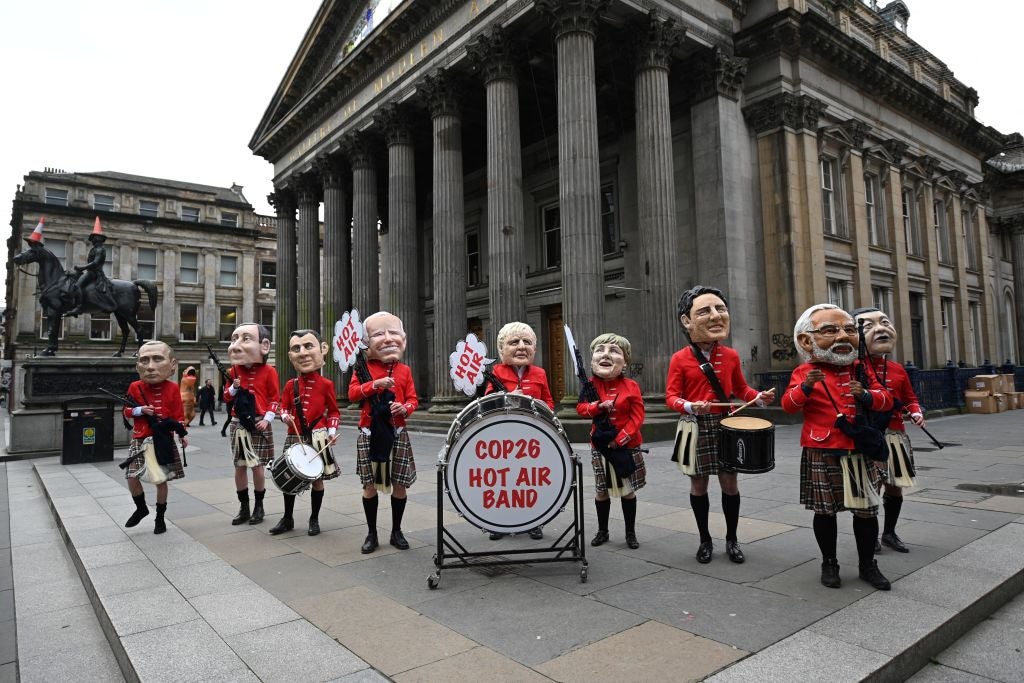The 26th UN Climate Change Conference – more commonly known as COP26 – was held in Glasgow in November. The event crashed into the city like a wrecking ball; hotel prices soared, internal rail strikes were threatened, and police officers were plucked from neighbouring cities and put on red alert for the duration as they sat in their shared hotel rooms between 12-hour shifts.
For all the disruption caused, the expansive daily reporting across the media and the world leaders in attendance, you would be forgiven for hoping that this event may have been able to gift-wrap something close to a solution to the climate crisis, just in time for Christmas, such was the pressure on the conference.
Was COP26 under too much pressure to deliver?
Indeed, COP26 certainly had more public expectation than the COPs that had taken place before.
A BBC World Service opinion poll, which surveyed over 30,000 people, found that the public were looking for more ambitious targets and fewer gradual action plans. Furthermore, there was a wide expectation that leaders would sign up to agreements at COP26.
So were those expectations met? Simon Mundy, author of Race for Tomorrow, a book covering the global scramble to address climate change, and Moral Money editor at the Financial Times, says: “If you try to assess how much impact COP26 had, you need to decide what standards you are judging it by.”
Mundy, who attended COP26, believes that arguably this was the most successful COP so far. “There were various pledges that were quite ambitious in terms of targets – on things such as deforestation and methane emissions – and there was some progress in setting the rules for international carbon markets," he says. "These were developments that were bigger than a lot of previous COPs.”
Despite these steps towards progress, if the event’s offered solutions are put into context with regards to the problem of climate change, then the results were far from satisfactory.
COP26's uneven playing field
Mundy believes that smaller countries lacked a voice at COP26, using the Maldives as a stark example. “The Maldives is going to cease to exist in its current form, that is just a matter of scientific fact," he says.
“If you are a political leader from the Maldives, or from other countries that have been humbled by the impacts of climate change, then disappointment is actually not a strong enough word [for the results of COP26].”
This highlights the uneven playing field when it comes to global events such as the COPs, which are burdened with solving weighty issues such as these. First, leaders of developed countries typically have less to fear from climate change – certainly when compared with a small country whose physical existence is under severe threat.
Second, many view such events as little more than an opportunity for capitalists from big countries to talk to other capitalists from big countries, given that they bring together important and powerful companies and governments. This raises questions about the motivations of people who attended COP26.
On one hand, the fact that significant leaders are taking climate change seriously, or at the very least appearing to do so when the cameras are on them, is a positive. Yet, if those in attendance are only there to virtue signal and tick a PR box, can real, effective change be the result of such meetings?
Mundy says: “A colleague of mine told me he was aware of mergers and acquisitions [taking place at COP26] – bankers going up to Glasgow to do deals that had nothing to do with positive national climate change. The only motivation was that all the CEOs were gathered in one place. COP26 became this year's Davos.”
Hypocrisy on the menu at COP26
The thought of bankers, CEOs and politicians swirling glasses of scotch whisky and doing deals in-between presentations concerning the literal end of the world is an uncomfortable one.
This issue was less reported than other issues that left the attendees of COP26 open to accusations of hypocrisy: the use of more than 400 private jets, the traditional Scottish menus littered with meat options, and a high volume of chauffeur-driven cars idling on side streets around the venue.
As irritating and classist as the hypocrisy around COP26 feels, it is generally unhelpful to waste breath (the above paragraph included) on pointing out these hypocrisies. Focusing upon what these villainous, elite, rich people did wrong at COP26 will do nothing effective to combat climate change and it runs the risk of distracting people from the real issues at stake.
The harsh reality is that big, important voices can enact change in the fight against climate change. Yet those that are taking the hardest punches are often absent or not as present in the discussions due to the inherent exclusivity that big global events can create.
"Something that occurred to me was that you had a lot of rich people around and very few poor people, even though most people in the world are poor," says Mundy. "One thing that concerns me is that if this is not addressed, you might have an even bigger problem at future COPs, because certain people will have been scared off."
Global events on this scale breed opportunistic moves such as big companies creating 'side events' and charging hundreds of pounds for access to their exclusive problem-solving discussions – a conversation featuring rich people talking to other rich people about topics that have the greatest impact on poor people. So the second most important question for the next COP should really be, how do we make this discussion more accessible and diverse?





